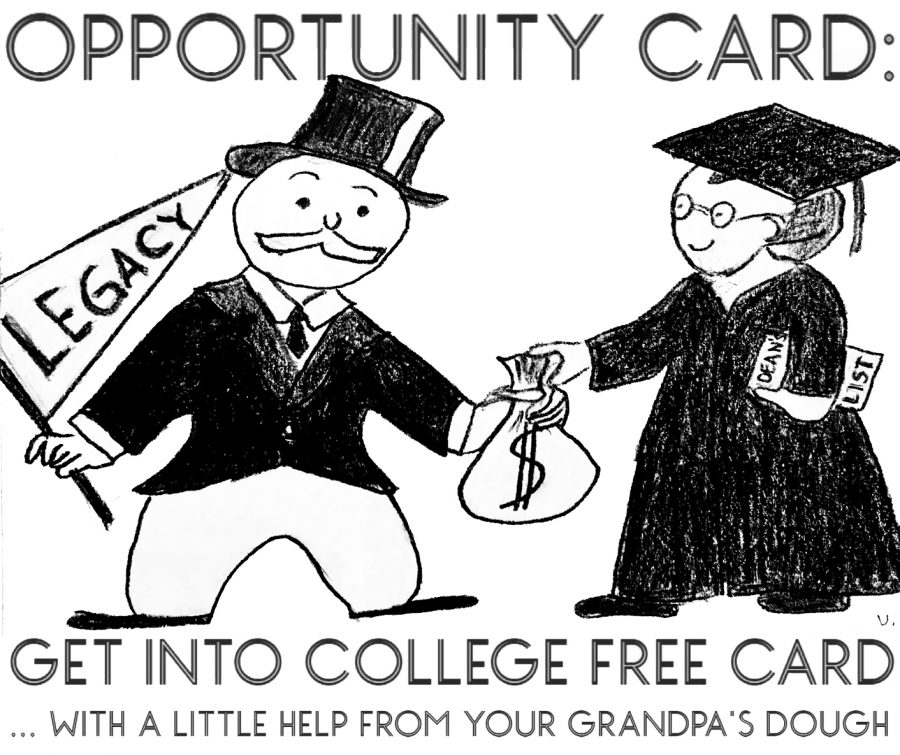POINT/COUNTERPOINT: Should Legacies in Colleges Become a Thing of the Past?
LEGACIES ARE UNFAIR
September 30, 2019
Imagine working beyond your potential and stacking your plate by taking five AP classes and even enduring four years of demanding electives such as Science Research to get into the college of your choice. Then, a student whose parent attended your dream school, that hasn’t worked nearly as hard as you, steals your spot on the acceptance list. College legacies are preferential admissions decisions for relatives of alumni. It’s simply a reward system devised by academic institutions to pay back alumni who have made a significant monetary contribution or donated a new building or library to the school to grease the wheels for their descendants’ admission. It amounts to an acceptable form of bribery. This policy hinders a fair admissions playing field. Children whose parents have a legacy sway admissions counselors. As a result, spots are taken away from the hardworking, qualified, and the economically disadvantaged.
While ‘legacy’ students shouldn’t be discouraged to apply to their dream school, the privilege of attending such a school should be earned, not passed down. The presence of college legacies can be equated to being born into nobility: unearned privilege. The founding premise of America is that hard work allows one to increase one’s standing in society. Greatness should be achieved by working hard, not by coming from a favored lineage and household. To paraphrase William Shakespeare’s Twelfth Night, “Some are born great, some achieve greatness, and some have greatness thrust upon them… and some can buy their way to greatness with grandaddy’s money.” That’s just not right.
The legacy policy has displaced qualified people from college seats. According to Peter McPherson from Inside Higher Ed, a college information website, less than 10 percent of students from low-income housing graduated college with a degree, compared to 80 percent of high-income housing students. It is not that these students did not have the capability to earn a degree, it is that their obstacles were numerous, and were further worsened by their peers’ almost guaranteed admissions. In an imperfect society where education can fix all, how is it not the norm for colleges to strive to give equal opportunities to all?
Nearly 2,500 years ago, Confucius introduced the idea that government positions should be based on merit and not who your family is. He would be disappointed with this new strain of nepotism and the cyclical nature of imbalance.




